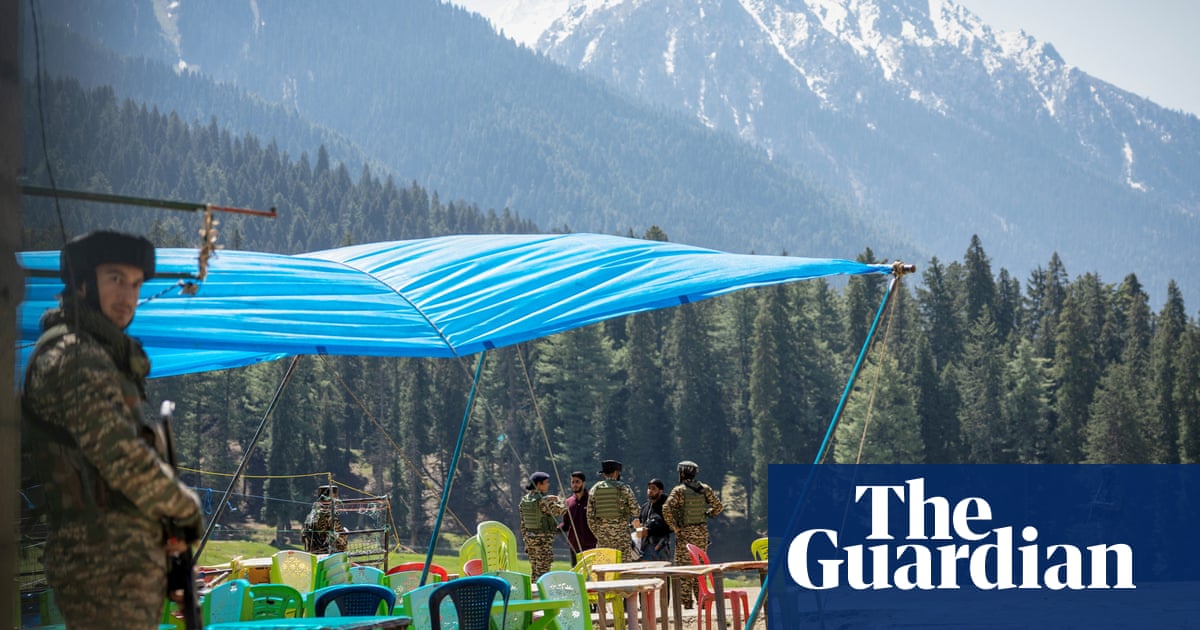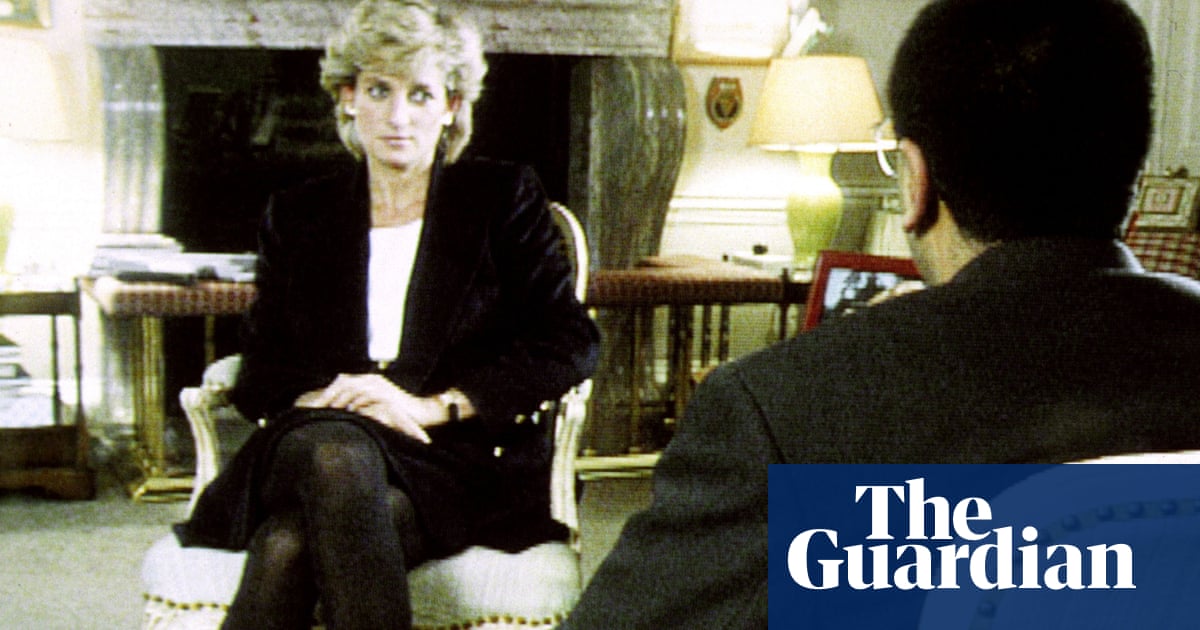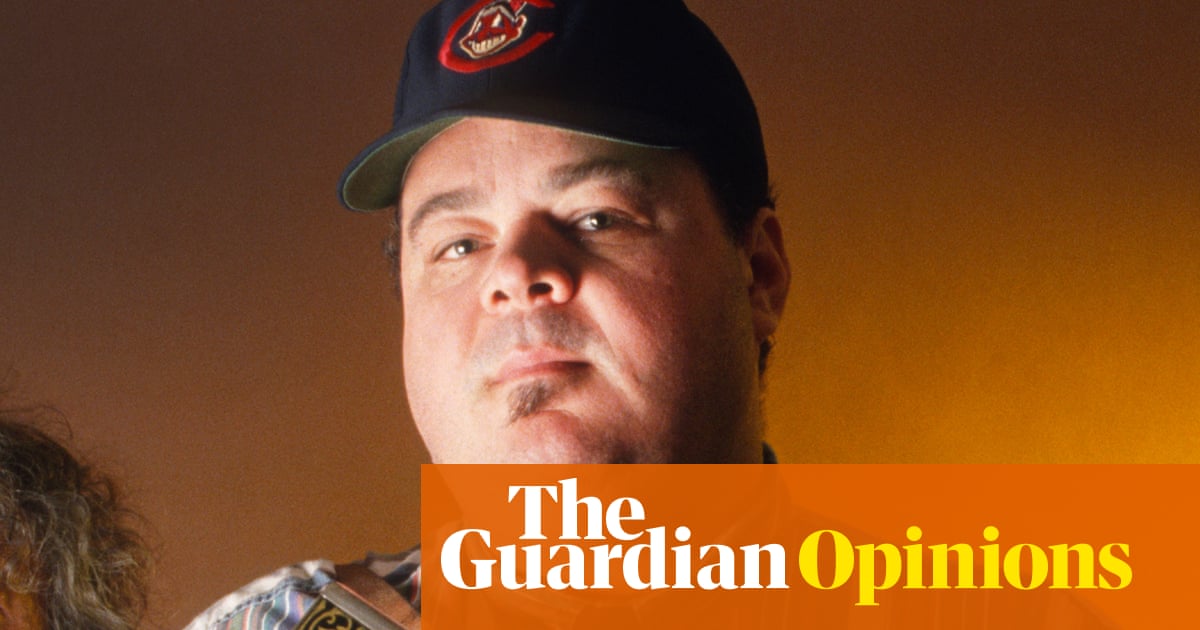In early 1964, Jean Ziegler, a young Swiss politician, received a phone call from a man claiming to represent Ernesto “Che” Guevara, the Cuban revolutionary and minister of industry. Che would be in Geneva in March for a UN conference on trade policy, and some comrades had suggested Jean might be his chauffeur during his stay. Was Ziegler available for the gig?
Today, in his tenth decade of life, Ziegler is Switzerland’s most notorious public intellectual. That’s because, over the course of writing about 30 books, serving for close to three decades in the Swiss parliament, and relentlessly crusading for leftwing causes in his free time, Ziegler has made a career of unsparing criticism of his home country and its outsize influence on the rest of the world. In the 1960s, though, he was just another eager young leftist, waiting for his chance to change the world.
Ziegler, like Che, was born into a family of upper-middle-class professionals. And, like Che’s, his travels around the world had radicalised him against what he perceived to be a capitalist, imperialist and racist system. Everywhere he went, he saw its ravages: in the Belgian Congo, whose hungry children haunted him long after he went home; in Algeria’s bloody wars of independence against the colonial French; and in annexed Cyprus, where the British had deprived citizens of their right to self-determination for decades.
Ziegler heard the echoes of oppression closer to home, too, in the deracinated commodity exchanges through which speculators bet on the price of food and fuel; and in the bank vaults mere steps from his home, where kleptocrats siphoned away their countries’ natural resources.
For centuries, the Swiss had prided themselves on keeping blood and money apart: of keeping its bank vaults isolated from the upheavals of the outside world. In Ziegler, they spawned an iconoclastic figure who forced them to reckon with the moral cost.
“Blood may not run down the walls of the UBS headquarters,” he told me one afternoon in June 2021. “But it’s as if it did: the relative wellbeing of Swiss people is financed by death, fear and famine. This is Ali Baba’s cave: the world’s haven. That’s unique to Switzerland.”
I always had a hunch that there was something strange about the place where I grew up, the Swiss city of Geneva, though its location doesn’t tell the whole story. Geneva hosts the United Nations, the World Health Organization and hundreds more international organisations and NGOs, which employ thousands of diplomats, consuls, expatriate workers and their families. There are more multinational companies there than I can count. Nearly half of Geneva’s population has a non-Swiss nationality. Without outsiders, the city would be nothing.
I am, and will always be, a part of this world apart – a place defined by a certain placelessness. I went to international schools, where the history we were taught had little to do with the battles that had been fought steps from the playground. My parents’ jobs at the UN – my father was an economist at the organisation’s Conference on Trade and Development, and my mother, a conference interpreter for its secretariat – compounded the feeling of being a little elsewhere. My classmates seemed to move every few years, which made it feel like I was always moving, too, without my ever actually leaving.
But there was another, less obvious reason for my unease with Geneva. It had to do with the rules: who made them, who followed them, and the places and people to whom they didn’t apply. So much of Geneva’s wealth comes from that spectral economy it plays ghostly host to, swaddled in security, neutrality, secrecy laws and tax exemptions.
The canton of Geneva has only about half a million residents, with barely 200,000 living in the city proper, but more than one-third of the world’s grain is traded from desks here. More than half the bags of coffee in the world pass “through” Switzerland, most of them via firms in and around Geneva, in much the same fashion. The country didn’t get its first Starbucks until 2001; a few months later, the company began purchasing its coffee through a Swiss affiliate.
Geneva has long been a hub for oil – if you can call it a hub when the barrels never actually turn up there. Until a few years ago, between 50% and 60% of Russian crude was traded from Switzerland, mostly Geneva, according to the research nonprofit Public Eye. When the Swiss parliament reluctantly voted to join the EU’s sanctions regime against Russia after Vladimir Putin’s invasion of Ukraine, some of that business decamped to Dubai.
Switzerland is landlocked. That is no impediment to its being home to some of the biggest shipping companies in the world, which charter and manage vessels from Geneva while shrouding their beneficial (de facto) owners in layers of corporate secrecy. This way of positioning itself in the world is Geneva’s greatest contribution to the way we all live now: in an age of exceptions, in which the where and when don’t matter as much as who, how much and why. It’s a world where wealth travels in abstract form: numbers on a screen, trades on a terminal. It’s a world in which borders are drawn not just around places but also around people and things.
Ziegler saw this early and exposed it often, risking his livelihood (and certainly his popularity with his compatriots) relentlessly.
I met Ziegler at his home in the small village of Russin, a few miles outside Geneva. He was wearing grey sweatpants and a stained white shirt when he greeted me at the door, and offered me whisky, more whisky and wine before conceding to pour me a glass of water while I waited on an upholstered yellow couch by the terrace door. The house was spacious and unfussy. It hung over a steep vineyard with a view of the lake. Every surface in the living room was piled with books, potted flowers or photographs of his family. “I hope you don’t mind that I’m barefoot,” he said. “I took a tumble recently,” he added, pointing to his bandaged forehead, “and it’s more comfortable this way.”
Ziegler began his political life as a conservative; he was an active member of a student group formed in 1819 to promote Swiss national unity. He moved to Berne to read law, and then studied sociology in Paris at the Sorbonne in the mid-1950s. Between lectures, Ziegler befriended Jean-Paul Sartre and Simone de Beauvoir, and over the course of smoke-filled, wine-drenched evenings in Sartre’s mother’s flat the couple turned him on to Marxism and encouraged him to report on the Algerian war for their magazine, Les Temps Modernes.
De Beauvoir took it upon herself to edit Ziegler’s awkward Swiss-German-French into more polished and literary prose. She also urged him to ditch his given name, Hans, and become Jean, which she judged a more dignified byline. It was Jean that Ziegler went by when he joined the French Communist party, and as Jean that he was expelled over his support for Algerian independence. But it was as Hans that he provided material support to the causes he loved: carrying suitcases of cash over the French-Swiss border for the Front de Libération National to deposit in Geneva, and “losing” his passport (with the aim of lending it to a comrade) a few too many times to pass himself off as innocently absent-minded.
In 1961, Ziegler responded to a classified ad seeking French speakers to accompany a British civil servant on a mission to what is today the Democratic Republic of the Congo. The country had just become independent, but a coup backed by Belgium (which wanted to keep mining concessions) and the United States (which wanted to squash communism) deposed the elected president, Patrice Lumumba, and installed Mobutu Sese Seko in his stead. Mobutu was your archetypal kleptocrat: a ruthless, fiercely anti-communist megalomaniac hellbent on enriching himself and his cronies while the Congolese people suffered. He nationalised industry but put the country’s resources in the hands of friends and family, leaving ordinary citizens little to show for their country’s vast mineral wealth.

Ziegler was staying in a gated hotel in what is now Kinshasa, ensconced behind high walls snared with barbed wire, where every day hungry local children would gather and beg for leftover food. One day, Ziegler watched as the compound’s guards violently dispersed the children and sent them away bruised and bleeding. It broke his heart to see them treated that way. His voice cracked as he recalled the incident as though it had happened just yesterday.
When Ziegler learned that Mobutu had siphoned off unthinkable sums of money from his country and deposited them in Swiss banks, the political started to feel personal – intensely personal. “I saw children in terrible, terrible conditions there,” he told me. “And knowing that Mobutu, who came to Geneva with this blood money that caused so much death in his country, was enabled by the Swiss oligarchy – that’s what motivated me.”
By the time Ziegler met Che and his associates in Geneva, in their berets and olive-green uniforms, he was all in. Over the next two weeks, he ingratiated himself with the Cubans, driving them to Mont Blanc, translating what Spanish he could, and making himself available at all hours of the day. The revolutionaries brought the jungle with them to the staid city, sleeping in shared rooms in hammocks, drinking, smoking and staying up all night arguing. Ziegler joined in, and on their last evening he gathered up the courage to ask Che to take him back to Cuba so he could join the revolution.
It was a clear night, and from their room on the eighth floor of the Hotel InterContinental, they could see the lake, illuminated then as now with fluorescent signs for luxury watches.
Che gestured out over the water. “Here is where you were born, and here lives the monster’s brain,” Ziegler remembers him saying. “It is here,” he continued, “that you must fight.” It was probably just a throwaway line intended to dissuade a scrawny dilettante from getting himself killed. But Ziegler took it to heart. He knew there was something about the way Switzerland operated that made it uniquely useful to the forces of capitalism: not as a lead actor, but as an enabler working from behind the scenes.
Some years later, Ziegler would use the term “secondary imperialism” to define his country’s modus operandi. This was not the first-order French, British or, later, American imperialism, with boots on the ground and armies on call. It was a more discreet kind of influence that intervened in its wake: a cabal of multinational firms and financiers who kept poor countries dependent on western (mostly American) goods, guns and money.
The Swiss enabled these practices by offering access to favourable regulations and financing, and a reputable, orderly and neutral business environment: good rules, good laws. It was, in a sense, the mercenary trade by another name. The Swiss weren’t sending bodies abroad to fight someone else’s war of conquest, as they had in centuries past. But, in Ziegler’s reading, they were providing a launching pad for a modern corollary. “Once I saw what was going on,” he told me, “I couldn’t not denounce it.”
His book, Switzerland: The Awful Truth, was published in 1976. Ziegler’s thesis, which he stands by to this day, is that Switzerland’s role in the world is that of accomplice – handmaiden, of sorts – to capitalism.
“In Switzerland, the handling of money has a quasi-sacramental character,” Ziegler wrote. “Holding money, accepting it, counting it, hoarding it, speculating and receiving, are all activities which, since the first influx of Protestant refugees to Geneva in the 16th century, have been invested with an almost metaphysical majesty.”
Ziegler then laid into Swiss banks and pharmaceutical companies, trade groups and multinationals, implicating the firms and the individuals behind them in everything from drug trafficking to human rights abuses abroad. “It is hard to imagine a human activity that is not financed by a [financial institution] in Geneva, Zurich, Basel or Lugano,” he wrote.

The transgressors included the banks that welcomed suitcases of cash from dictatorships in Portugal and the Dominican Republic; the real estate agencies that helped Gulf sheikhs and Guatemalan colonels buy lakeside apartments in which to hide; and subsidiaries of the American firms Dow Chemical and Honeywell, which oversaw the international sales of napalm and landmines.
The claims Ziegler made in this and subsequent books landed him nine defamation lawsuits in five jurisdictions over the course of the following decades (Swiss defamation law is more liberal, for plaintiffs, than its US counterpart). All told, he has been assessed damages of 6.6m Swiss francs (CHF), equivalent to almost £5.8m, penalties that have essentially bankrupted him, at least on paper.
Ziegler has done more than point fingers at morally unscrupulous industries. He identifies his country’s famed political neutrality as a massive money-making asset in itself, a structural advantage in commerce and diplomacy that allows the Swiss elite to create safe spaces for capital and capitalists to thrive, no matter where they come from or what they believe. From there, the Swiss sweeten the deal with special concessions that go beyond what its European neighbours might offer: today, that might include a tax deduction for research and development costs in the pharmaceutical industry; special warehouses that are designated as outside customs territory, where wealthy people can store high-value objects such as art and wine; a tendency not to hold firms based in Switzerland accountable for pollution and labour abuses abroad; and, of course, the country’s strict laws against disclosing bank information.
Plenty of countries mobilise their capacities as recognised nation states – the ability to wage war (or not), collect taxes (or not), pass laws (or not) and police their borders (selectively) – as means to bring in money. But Ziegler’s argument has always been that his country punches far above its weight, to everyone’s detriment. That, he writes, makes it “a defensive association, not a nation state in the usual sense”.
The result is that, while maintaining the facade of an ultra-populist, referendum-driven direct democracy, the Swiss government is utterly beholden to global capital. It is also remarkably nimble. When voters decided in a 2019 national referendum to overhaul their country’s tax system and do away with preferential tax rates for multinationals, individual cantons took matters into their own hands and cut taxes locally: in Basel, corporate tax rates fell from 20% to 13%, while Geneva’s tax increases were essentially symbolic, growing from a baseline of 11.6% to 13.9%.
As Ziegler likes to put it: the Swiss have “fences” to render wealth untouchable. The word he employs is telling. In French, as in English, receleur and fence are double entendres that can refer either to a physical barrier or to a recipient of stolen goods. The fence is both the border and the banker, the moat and the middleman.

The fence – not the cuckoo clock, not fondue, certainly not brotherly love – is the nation’s contribution to the world we live in. If you know where to look, you will see little Switzerlands anywhere you go.
An enduring assumption about taxes in Switzerland (and its fellow tax havens) is that the country lowered rates in order to attract business. That narrative has it backward: in the early 20th century, France and Germany began to impose progressive income and inheritance taxes on their populations for the first time – taxing greater wealth at higher rates – while Switzerland did not. News got out through a deliberate advertising campaign targeting the rich: the University of Lausanne historian Sébastien Guex writes that the banks printed “brochures, circulars, personalised letters, and advertising in newspapers, and sent representatives who approached their clientele in person”. It worked: according to Guex, half Switzerland’s gross domestic product arrived in Swiss banks following these efforts.
Switzerland adopted a strategy of active obstruction, whether by adopting federal policies that precluded negotiations with other governments that might have held tax cheats accountable, by letting the Swiss banks “self-regulate”, or simply by refusing to crack down on the practice. The Swiss also benefited from a federal system that encouraged cantons to compete not only with foreign entities but with one another – and to provide clients with plenty of options.
In 1934, Switzerland adopted its now infamous bank secrecy legislation. The line you’re likely to hear about its origins – one that even Ziegler is wont to repeat – is that it was conceived to shield foreigners from persecution for taking money out of their home countries. Some German Jews, sensing trouble brewing, did so, and Germany had begun to punish such capital flight with the death penalty. But the historian Peter Hug discovered that this explanation was revisionist propaganda constructed in the 1960s by Credit Suisse. In fact, the secrecy law was the result of an existential scandal.
In 1932, the French police were tipped off about a secret meeting in an apartment on the Champs-Élysées, during which the head of Basel’s commercial bank was giving tax advice – of an unquestionably shady variety – to members of French high society. It transpired that the Basel bank’s 2,000 or so tax-averse French clients included bishops, generals, newspaper publishers, a dozen senators, a minister, the wife of a famous perfumer and the industrialist Armand Peugeot. Their wealth, all of it undeclared, amounted to no less than one-fifth of Swiss GDP.
The bankers returned hundreds of millions of francs to the French, realising that such incidents would cause clients to lose confidence and take their business elsewhere. Less than two years later, the Swiss parliament made disclosing the owner of a numbered account a federal crime, thus sealing their nascent banking industry from sight for the greater part of the next century. Under the new law, you didn’t need a victim to bring a criminal complaint; in the absence of a plaintiff, charges could be brought by the state itself.

In 2014, 47 of the world’s governments entered a deal requiring automatic exchanges of clients’ account information. Under international pressure, Switzerland finally joined in, but it had already won. Over the course of the 20th century, the country anticipated and accommodated the increasingly footloose nature of wealth by transforming itself from a (non)state into a kind of black hole straddling globalisation and regulation. The cash, gold, bonds and other securities that found their way to Berne or Geneva enjoyed the advantages of being both somewhere safe and nowhere visible at the same time. The fact that tax evasion – that is, deliberately making false declarations about wealth or income – is prosecuted in Switzerland as a civil, not a criminal, offence could not have hurt either. And as unrest spread throughout Europe, the Swiss bankers could always depend on their biggest commercial asset: their political neutrality.
Switzerland’s wiles and neutral status meant that it was able to ride out the second world war with relatively few disruptions. But that calm came at a steep moral cost that Ziegler remembers first-hand and has spent much of his career coming to grips with. His book The Swiss, the Gold, and the Dead offers a damning portrait of the Swiss banking establishment’s complicity with the Nazis.
There’s always a price to pay for breaking with national character. Ziegler is 90 years old, and he’s still paying. In 1990, he was sued by six different parties for allegedly defamatory statements in his book Switzerland Washes Whiter, in which he accused Swiss banks of taking money from drug dealers and other criminals.
Ziegler wound up losing his parliamentary immunity – which shields elected officials from certain types of prosecution – and being ordered to pay hundreds of thousands of francs in fines. For years, security guards were stationed near his house. “The threats are very precise,” he told the Los Angeles Times. “They always say something like, ‘Yesterday your son was here, you were there.’ It’s a kind of psychological destabilisation.” Ziegler’s wife, Erica, an art historian, holds the deed to their house so that it can’t be taken from them, he told me, and his book royalties are still being garnished.
In 1998, Ziegler was called to testify before the US Congress on the role of Swiss banks during the second world war. “The ordinary Swiss people were deeply hostile to the mass murderers in Berlin. They hated Adolf Hitler and refused any dealings whatsoever with him and his cronies,” he said. “Unfortunately, this was not the case for some of the members of the ruling class, namely the directors of the Swiss National Bank, board members of commercial banks and some members of the Swiss government.”
For his remarks, a group of conservatives in Switzerland accused him of criminal treason, arguing that his “malicious lies, fabrications, calumny and boundless exaggerations” threatened state security. The charge claimed he was “provoking or assisting activities against the security of the state by foreign organisations or their agents”.
It struck me that after a lifetime of observing the mechanics of capitalism, Ziegler still seemed spellbound by the ingenuity, cynicism and malevolence of its enablers. “The fact that this tiny country of only 42,000 sq km, of which only 60% is habitable, with a population of fewer than 10 million, is such a powerful offshore centre – that 27% of the world’s offshore fortunes are managed in or from Switzerland – it’s just astonishing,” he told me. His moral outrage seemed compounded with wonder. I could relate.
I asked Ziegler if it had all been worth it, and if he felt he’d made a dent in the system he had spent so long fighting. After all, bank secrecy was not what it used to be; money laundering, while by no means eradicated, is at least now a criminal offence; and Swiss banks are on the defensive.
The prominence of these types of stories is proof that leftwing activists like Ziegler have influenced public debates about justice, fairness and inequality, and that awareness of the globe’s hidden havens is growing. But it’s not yet clear what impact these campaigns will have on actual wealth inequality and on the world’s poor.
Ziegler, for one, thinks his country will abide by the letter, but not the spirit, of the law.
This is an edited extract from The Hidden Globe, published on 20 February by Picador (£22). To support the Guardian and Observer, buy your copy from bookshop.theguardian.com. P&P charges may apply

.png) 2 months ago
28
2 months ago
28













































